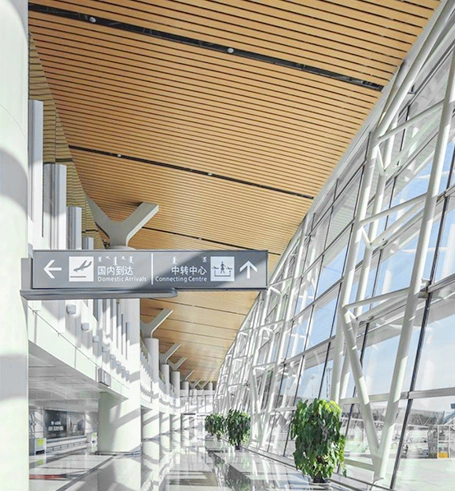Aluminum Facades: Enhancing Thermal Performance and Insulation in Architecture
Aluminum facades have become a popular choice in modern architecture due to their versatility, durability, and aesthetic appeal. One of the key advantages of aluminum facades is their ability to enhance the thermal performance and insulation of commercial spaces.
The Importance of Thermal Performance
Thermal performance is a crucial aspect to consider when designing a building, as it directly impacts the comfort of occupants and energy efficiency. Aluminum facades are highly effective in regulating the temperature within a building by providing a barrier against heat transfer. By incorporating aluminum facades into the design of commercial spaces, architects can optimize energy consumption and reduce heating and cooling costs.
Insulation Properties of Aluminum Facades
In addition to improving thermal performance, aluminum facades also offer excellent insulation properties. The material’s inherent strength and tight construction help to minimize air leakage, preventing drafts and maintaining a consistent indoor temperature. This is particularly important in commercial buildings where a comfortable environment is essential for productivity and well-being.
Customization and Enhanced Thermal Performance
Furthermore, aluminum facades can be customized to include additional insulation materials such as foam or mineral wool, further enhancing their thermal performance. By combining the insulating properties of these materials with the structural integrity of aluminum, architects can create a highly efficient building envelope that is both functional and aesthetically pleasing.
Low Maintenance and Cost-Effectiveness
Another benefit of using aluminum facades in commercial spaces is their low maintenance requirements. The material is resistant to corrosion, moisture, and UV radiation, ensuring that it will withstand the test of time with minimal upkeep. This makes aluminum facades a cost-effective solution for long-term building performance and sustainability.
Design Flexibility and Installation Benefits
Furthermore, aluminum facades are lightweight, making them easier and more cost-effective to install compared to traditional building materials. Their versatility allows architects to create intricate designs and patterns that enhance the visual appeal of commercial spaces while still providing excellent thermal and insulation properties.
Conclusion
In conclusion, aluminum facades offer a range of benefits for commercial spaces in terms of thermal performance and insulation. By incorporating aluminum facades into the design of buildings, architects can create energy-efficient, comfortable, and visually striking environments for occupants. With their durability, low maintenance requirements, and design flexibility, aluminum facades represent a cutting-edge solution for modern architectural projects.